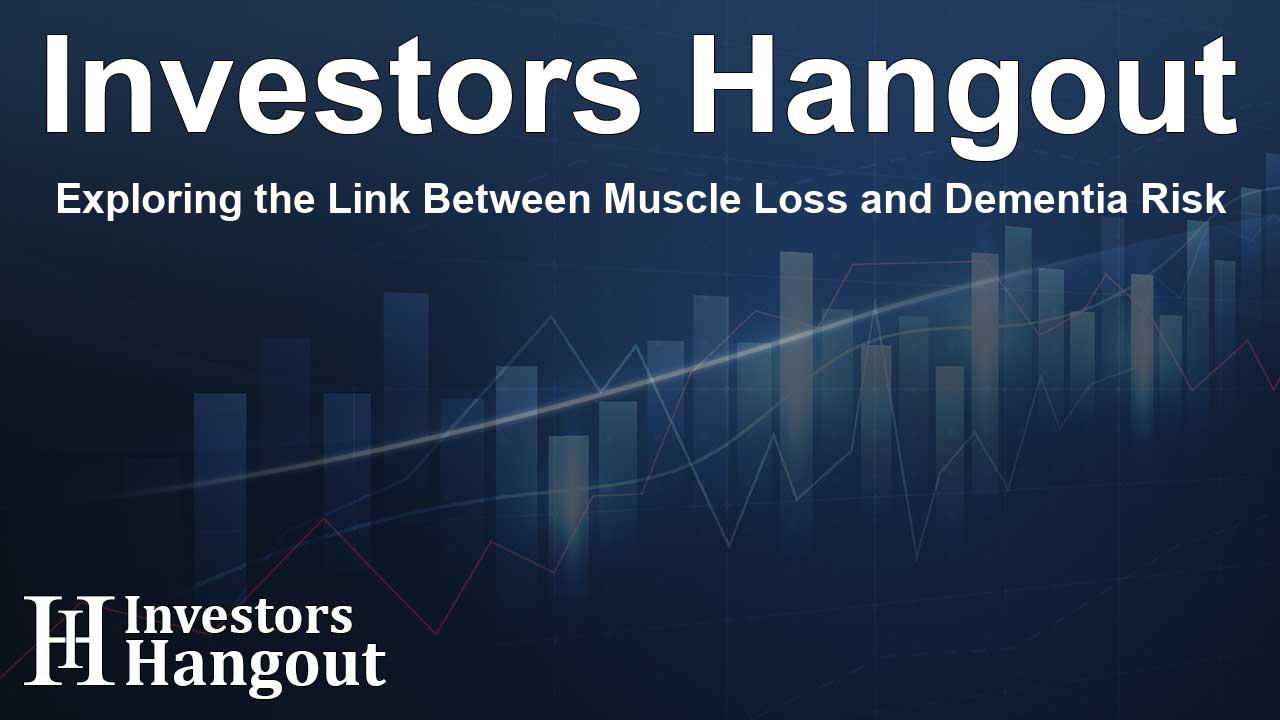Exploring the Link Between Muscle Loss and Dementia Risk

The Connection Between Muscle Loss and Dementia
Skeletal muscle loss is increasingly recognized as a concerning factor in the risk of developing dementia. Recent research has brought to light significant findings regarding how the decline in muscle mass may link to cognitive deterioration. Understanding this connection sheds light on potential avenues for prevention and intervention.
Significance of Skeletal Muscles
Skeletal muscles account for approximately one-third of a person's total body weight and are essential for movement. As individuals age, the gradual loss of skeletal muscle mass, known as sarcopenia, becomes commonplace. This natural decline not only affects physical mobility but may also play a role in cognitive health.
The Role of Temporalis Muscle in Dementia Risk
A pivotal study focused on the temporalis muscle, located in the head and crucial for jaw movement, using its thickness as a proxy for overall muscle loss. This research aimed to determine if the size of the temporalis muscle correlates with the risk of Alzheimer’s disease (AD). The findings indicate that those with smaller muscle size may face heightened dementia risk, particularly in older populations.
Research Methodology
Conducted by a team at Johns Hopkins University, this study utilized MRI data from participants who were part of the Alzheimer's Disease Neuroimaging Initiative. In total, 621 participants, with an average age of 77 years and without dementia at baseline, were evaluated. The researchers measured muscle area and tracked subsequent developments in cognitive function over nearly six years.
Key Findings and Implications
The analysis unveiled a striking relationship between smaller temporalis muscle cross-sectional area (CSA) and a significantly increased risk of developing Alzheimer’s disease. Participants classified with smaller temporalis CSA showed a 60% higher likelihood of developing dementia compared to those with larger muscle areas, even when adjusting for other known risk factors.
Potential for Early Detection
This research highlights a promising opportunity for early detection of dementia. Through routine brain MRI scans, clinicians could gain insights into skeletal muscle health without additional burdens. This opportunity could enable timely intervention strategies to combat muscle loss and mitigate the risk of cognitive decline.
Strategies for Intervention
Proactive measures are essential in addressing skeletal muscle decline. Regular physical activity, resistance training, and dietary adjustments can contribute to maintaining muscle mass and enhancing overall health. Researchers advocate for these interventions, as they may not only bolster physical strength but also defend against the onset of dementia.
The Broader Context
Beyond individual health, understanding the connection between muscle mass and cognitive decline has broader implications for public health. As the population ages, implementing community-focused programs that promote healthy lifestyles among the elderly is crucial. Encouraging active living and proper nutrition can create a significant impact on the prevalence of dementia.
Conclusion
The findings regarding skeletal muscle loss and its association with dementia risk underscore the importance of holistic health management, especially among aging populations. As we delve deeper into this connection, healthcare practitioners are encouraged to integrate muscle health monitoring into routine assessments, paving the way for more personalized and effective care practices.
Frequently Asked Questions
1. What is the main finding of the muscle loss and dementia study?
The study found that individuals with a smaller temporalis muscle are at a significantly higher risk of developing Alzheimer’s disease.
2. Why is skeletal muscle loss important for cognitive health?
Skeletal muscle loss, particularly in older adults, can be indicative of overall health and may correlate with cognitive decline or dementia.
3. What interventions can help reduce the risk of cognitive decline?
Engaging in regular physical activity, resistance training, and ensuring adequate nutritional support can help mitigate muscle loss and potentially reduce dementia risk.
4. How was the research conducted?
The study utilized MRI scans from a cohort of older adults, assessing their temporalis muscle size and tracking cognitive changes over time.
5. What does this study imply for future dementia care?
It suggests that monitoring muscle health could be incorporated into routine care practices, allowing for early intervention to prevent cognitive decline.
About The Author
Contact Olivia Taylor privately here. Or send an email with ATTN: Olivia Taylor as the subject to contact@investorshangout.com.
About Investors Hangout
Investors Hangout is a leading online stock forum for financial discussion and learning, offering a wide range of free tools and resources. It draws in traders of all levels, who exchange market knowledge, investigate trading tactics, and keep an eye on industry developments in real time. Featuring financial articles, stock message boards, quotes, charts, company profiles, and live news updates. Through cooperative learning and a wealth of informational resources, it helps users from novices creating their first portfolios to experts honing their techniques. Join Investors Hangout today: https://investorshangout.com/
The content of this article is based on factual, publicly available information and does not represent legal, financial, or investment advice. Investors Hangout does not offer financial advice, and the author is not a licensed financial advisor. Consult a qualified advisor before making any financial or investment decisions based on this article. This article should not be considered advice to purchase, sell, or hold any securities or other investments. If any of the material provided here is inaccurate, please contact us for corrections.
